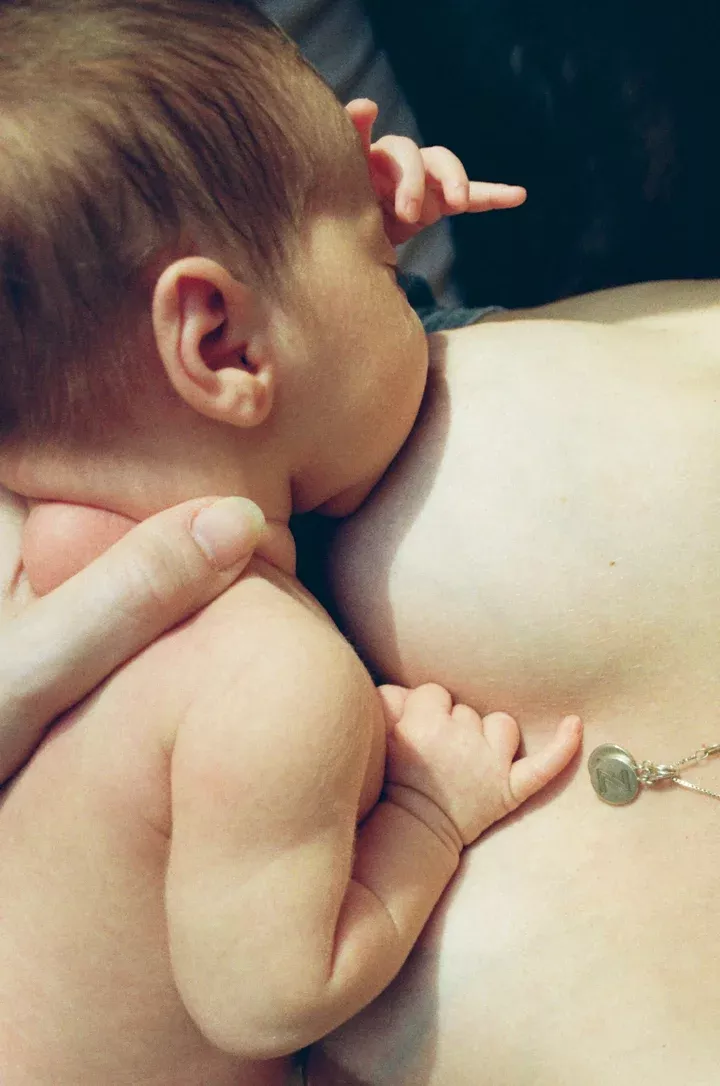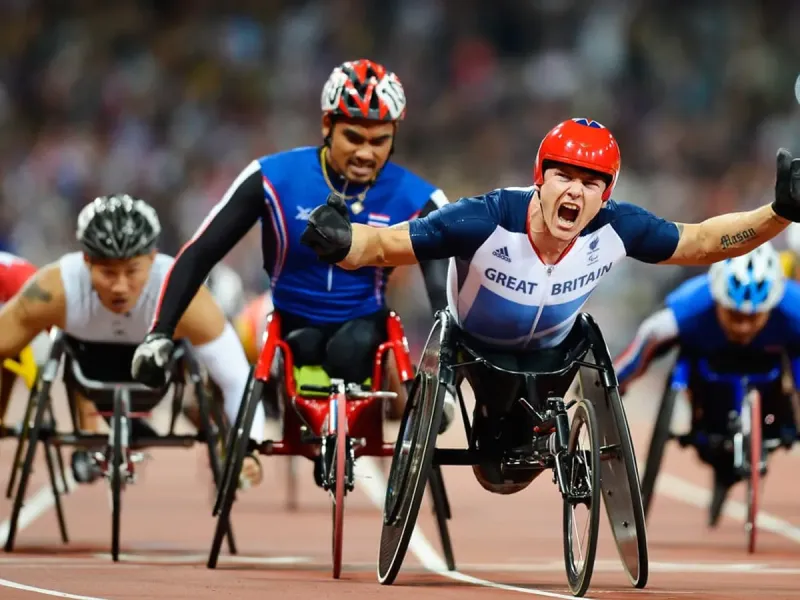You’ve probably seen the photographer Sophie Harris-Taylor’s work. Her 2018 project Epidermis, a series of portraits centring and celebrating the beauty of common skin conditions, went viral on Instagram and across the web, while a more recent series explored the lack of support for men transitioning into fatherhood. And then there's Milk, a frank exploration of the reality of breastfeeding. These intimate, personal and sensitive images are always inspired by Sophie's own life: her relationship with acne, her partner becoming a father, her own experiences of breastfeeding. But it is rare for her to turn the camera on herself. Then she got pregnant for the second time.
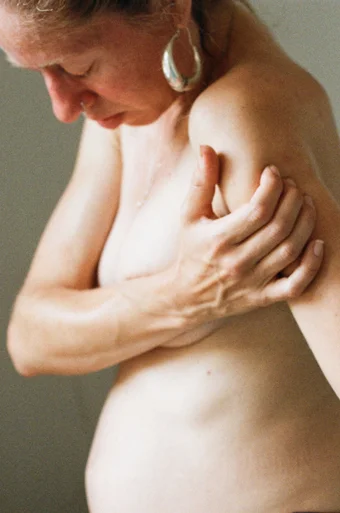
PHOTOGRAPHED BY SOPHIE HARRIS-TAYLOR.
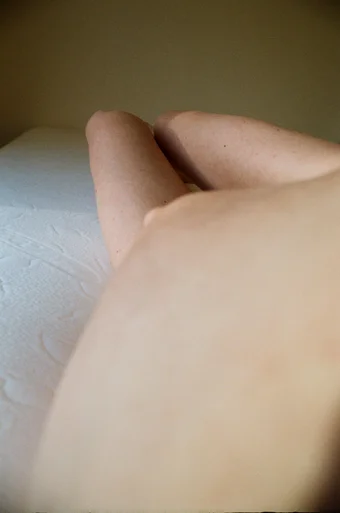
PHOTOGRAPHED BY SOPHIE HARRIS-TAYLOR.
As someone who has managed an eating disorder with various levels of success for her entire adult life (in her words: "I've been in recovery for 15 years but I don't really know what that means"), Sophie knew that negotiating her mental illness during pregnancy would be crucial. During her first pregnancy, she tells R29: "I knew I was lucky to fall pregnant and that I had to work with doctors and a specialist team from the eating disorders unit to help me have a healthy baby." Although it was a struggle, it was exciting to have her first son. So Sophie figured she could manage the process again.
But she found that pregnancy didn’t become easier with practice. "In fact," she shares, "I found it a lot more difficult. An eating disorder is all about control and in pregnancy your body goes completely out of control: your body's changing rapidly and all of the things that have always been really frightening to me were happening." And unlike Sophie's first pregnancy, where she was supported the whole way through, she didn’t have access to eating disorder specialists.
"To be honest, I didn't seek support at the beginning," she explains, "because I thought I'd done it before, so why should I go back and say, 'Can you help me again?'" When Sophie did speak to her midwife about being referred to a specialist, she was put on a waiting list straightaway. Unfortunately she remained on the waiting list for the majority of her pregnancy, with access to only the perinatal team, who didn't understand anorexia. "It wasn't until the very end of my pregnancy where I got the eating disorder specialist team," she says.
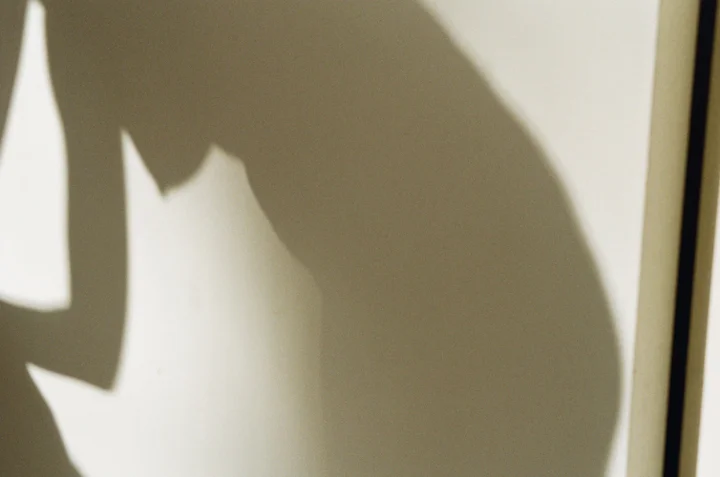
PHOTOGRAPHED BY SOPHIE HARRIS-TAYLOR.
As a result Sophie had to negotiate the duelling forces within her without specialist support. Pulling her in one direction were her ingrained thoughts and behaviours; pulling her in the other was her desire to ensure that her child would be healthy and happy.
"Falling pregnant wasn't an accident," she explains. "I really wanted another child, I just didn't want to go through the pregnancy. Obviously when you're a mother, you want to do the best for your child and I wanted to make sure that I was growing a really healthy baby and I was doing everything I could to make sure of that. But at the same time I had this huge guilt that came with nourishing my body in a healthy way.
"It was almost like these two voices in my head – I knew I had to do this because I knew I wanted a healthy baby but, at the same time, doing it made the eating disorder part of me feel really guilty and almost like I was failing. I constantly felt like I was battling myself."
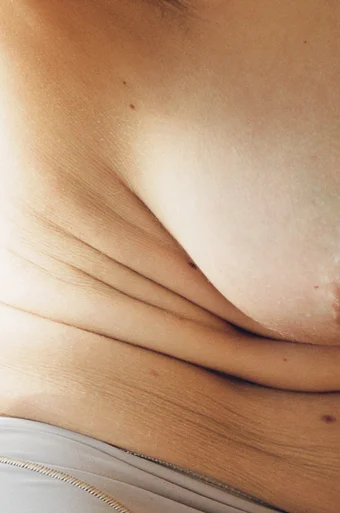
PHOTOGRAPHED BY SOPHIE HARRIS-TAYLOR.
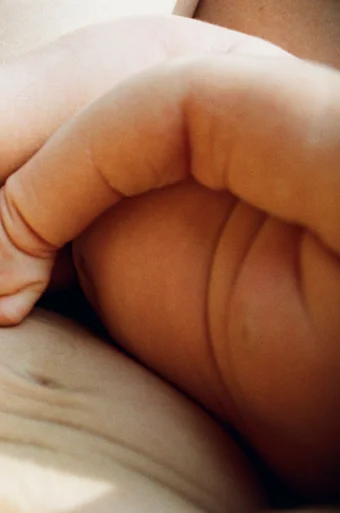
PHOTOGRAPHED BY SOPHIE HARRIS-TAYLOR.
Amid the turmoil, she started documenting herself and her thoughts.
"I got quite depressed. I did manage to get help but at the same time I started taking random pictures of myself and making notes about my feelings. When you're in quite a bad place you presume all your thoughts are pretty crazy, so I'd write them down and then take images sporadically. That's where the project began."
The narrative that emerges from these pictures and quotes, which have been collated in a project called Showing, is vulnerable and raw. In Sophie's self-portraits, her love for her daughter rubs up against visceral discomfort. Interspersed with close-ups of her taut skin and silhouettes are Sophie’s own thoughts, which she noted down during her pregnancy:
"I feel love but not excitement. I feel drained but not challenged. I feel lonely but I’m not alone, I’m rarely alone."
"The constant calculations and numbers making my head spin. A distorted mind a distorted view."
"Both vulnerable."
"I feel guilty I’m not cherishing these moments."
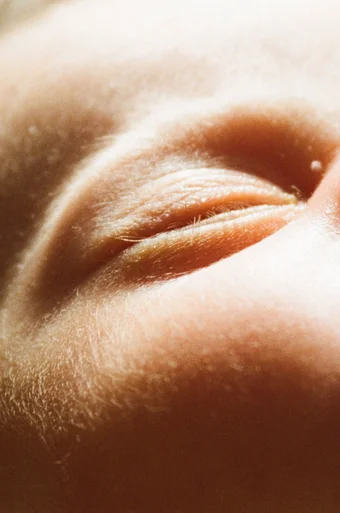
PHOTOGRAPHED BY SOPHIE HARRIS-TAYLOR.
Pregnancy, birth and early motherhood are not glossed over here. Sophie sought to make space for the pregnancy experiences that are so often masked by shame: a feeling of disconnect from your body, difficulty relating to popular pregnancy narratives, the complications of mental illness.
"I feel like we glorify pregnancy a lot," Sophie says. "If you tell anyone you're pregnant, you're congratulated, as for most people being pregnant is really incredible. A lot of women end up feeling even more comfortable in their bodies because they have a sense of higher power. But I think a lot of women feel the opposite. And that's not really spoken about and you'd feel a lot of shame if you were to talk about it."
By speaking to this struggle, Sophie was not only documenting her experience but also creating the kind of work that she herself sought out during those nine months.
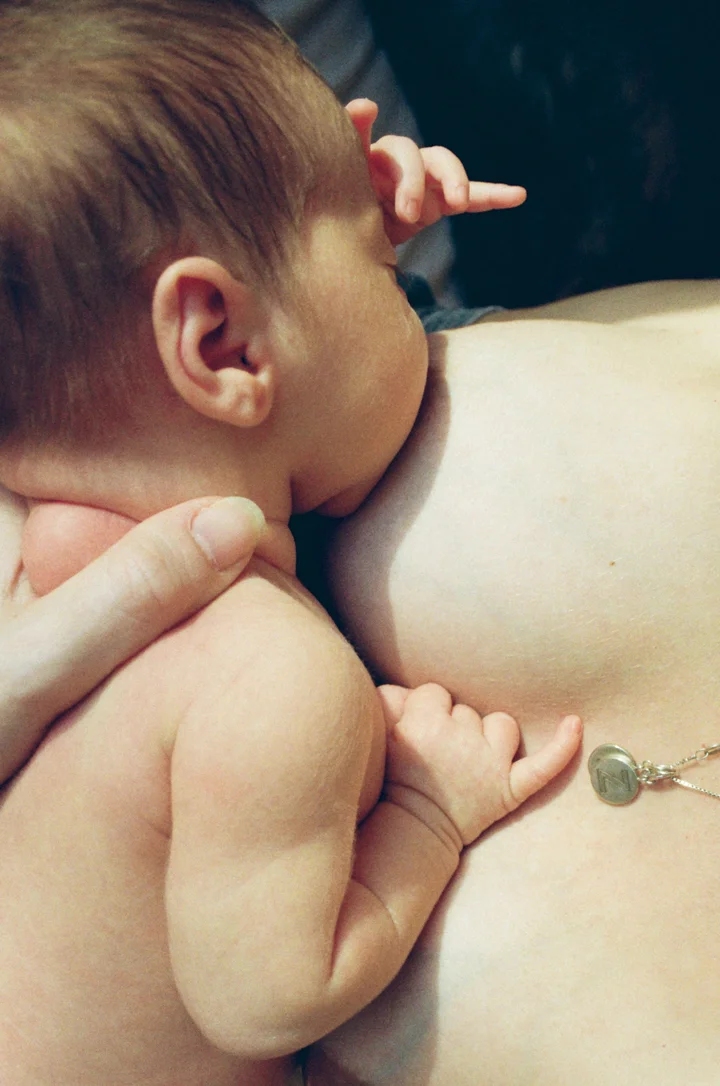
PHOTOGRAPHED BY SOPHIE HARRIS-TAYLOR.
"There were only a few articles out there which related to pregnancy and eating disorders," she says, "and any that were written in the first person I would read over and over again. I found them really helpful because it made me feel like I'm not alone in my experiences.
"That's why I've come to this point where I feel I should share some of the work."
Motherhood and living with an eating disorder are both existences fraught with shame. Pregnant women and new mothers find their bodies policed and held to impossible standards, while much of the driving force behind eating disorders is a societally encouraged shame about our bodies. Instead of glossing over these complicated emotions, Showing makes space for them. The result is both deeply personal and will resonate with anyone who’s felt pulled in two directions at once.
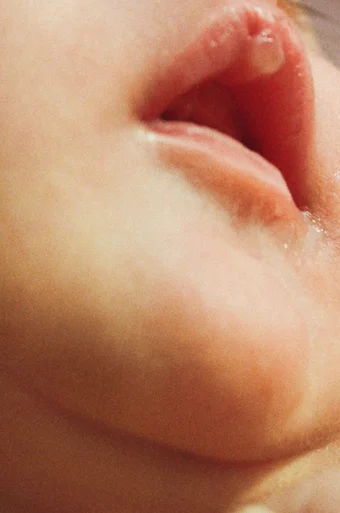
PHOTOGRAPHED BY SOPHIE HARRIS-TAYLOR.
Sophie is doing better now. Her depression has almost gone and she's working with a specialist eating disorder team.
"I'm in quite a long run of therapy. For me, I don't know if it's ever going to go but I certainly want to recover as much as possible. I've just had a daughter and the idea that I could pass on my behaviours to her...
"It's probably quite a long road but I'm doing the best I can. I've now got a beautiful little girl and I'm out of that newborn bit when they don't sleep so I feel a bit more myself again."
PHOTOGRAPHED BY SOPHIE HARRIS-TAYLOR.
REFINERY 29
